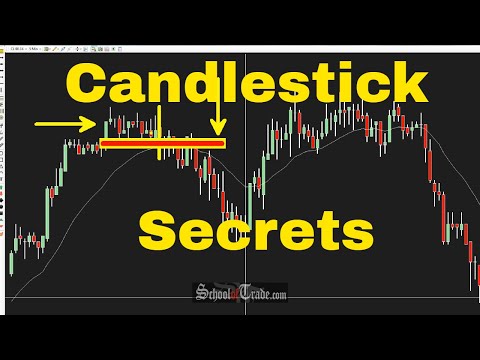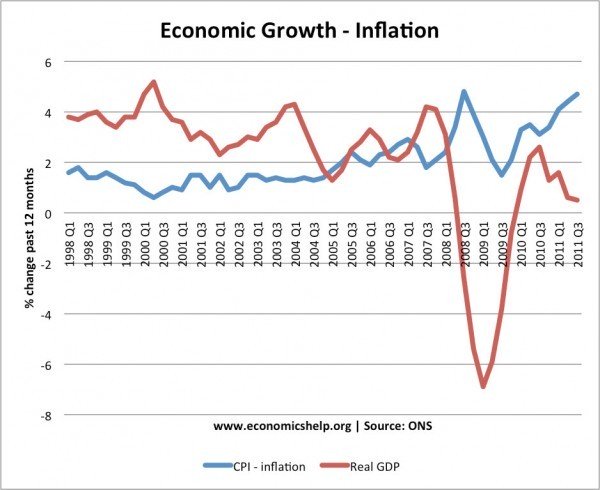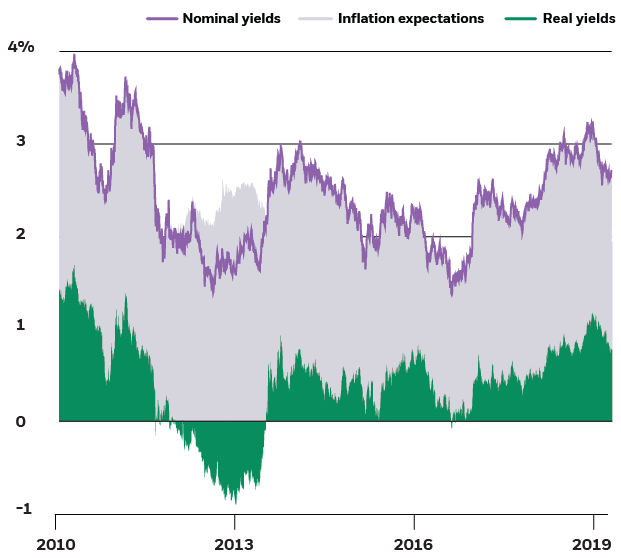Retail Formats, EBO Retail Vs MBO Retail, Best Retail Formats, Types of Retail Formats
Contents
Hedge funds seek a quick flip of their investments with the average length of their investments being 6-18 months, whereas private equity firms stay invested for around 3-5 years. Hedge funds are also inclined towards volatile withdrawal of investments as opposed to private equity firms which are focussed on long term returns. However, of late, it has been observed that the arena of activities of such institutional investors are not mutually exclusive. Many private equity groups own hedge funds and make long term investments in hedge funds.
The benefit of an MBO over an LMBO is that the corporate’s debt load could also be lower, giving it extra monetary flexibility. A administration buyout is a transaction the place an organization’s management group purchases the assets and operations of the business they handle. Private fairness companies often use LBOs to buy and later sell a company at a revenue. The most successful examples of LBOs are Gibson Greeting Cards, Hilton Hotels and Safeway.
- The Department of Industrial Policy and Promotion is framing the guidelines for allowing investments in trusts that invest in companies, especially start-ups, with the aim of long-term capital gains.
- Collateralised fund obligations are effectively securitization of mainly private equity fund-of-funds.
- Portfolio companies should provide to BVCA data on trading performance, including revenue and operating earnings, employment, capital structure, investment in working and fixed capital and expenditure on R&D and such other data as may be requested by BVCA.
- Both the countries have standalone rules and regulations for private equity.
Ljungqvist and Richardson describes private equity as an illiquid investment since there is no active secondary market for such investments, investors have little control over how capital is invested and the investment profile covers a long horizon. The European Venture Capital Association defines private equity as the provision of equity capital by financial investors – over the medium or long-term – to non-quoted companies with high growth potential. It is also called ‘patient capital’ as it seeks to profit from long term capital gains rather than short term regular reimbursements.
Tax Saving Investment Made Simple
Investors decide to pool in funds based on due diligence including the quality of the management team, its track record, investment strategy and fund structure. Capital is drawn down as needed in order to pay set-up costs and management fees (typically 2.5 per cent p.a.) and to invest in a number of companies over an investment period of 4-5 years. Over the following years, the companies in the portfolio are further financed and managed for exit via trade sales, public offerings or secondary markets.
An MBO’s advantage over an MBI is that as the present managers are buying the business, they’ve a a lot better understanding of it and there is no studying curve involved, which might be the case if it were being run by a brand new set of managers. Management buyouts are carried out by administration teams that wish to get the monetary reward for the future improvement of the corporate extra immediately than they would do as staff only. Leveraged buyouts are often used as a result of few management groups have the financial assets to buy the goal company outright. Management buyouts are incessantly seen as too dangerous for a financial institution to finance the acquisition via a loan.
India sixth in global IPO list
Further, the industry insists on self regulation where disclosures are made between investors and owners . In other words, unlike a publicly listed company which has to publish its financial results, annual reports and updates and forecasts of their performance to regulators, private equity faces no equivalent pressures to provide detailed accounts of their activities. The majority of statistical information about private equity ultimately derives from what member firms report to associations voluntarily. However, this leads to moral hazard as there is an incentive on the part of private equity firms to report only successful activities.
However, private equity firms which engages in activities beyond ‘venture capital business’ have broader permissions. Besides the ROA, the private equity firms have to adhere to the FSA Handbook requirements such as High Level Standards, Prudential Standards and Business Standards. If the activities of a private equity firm bring it under the cover of ‘Investment Services Directive’ , then it may be subject to prudential regulations. For example, a private equity firm carrying out portfolio management or the reception or transmission of orders is subject to minimum capital adequacy requirements. Private equity firms have to comply with the obligations contained in the Money Laundering Regulations, 2003 and Conduct of Business Requirements. But with the implementation of the Markets in Financial Instruments Directive which is replacing the ISD, many investment services which were classified as non-core under ISD will be reclassified as core service under MiFID.
Cannabis Industry Business Oppor…
They need exterior financing to facilitate the acquisition, and are sometimes interested in leveraging a few of the assets of the goal firm. If a bank is unwilling to lend, the management will commonly look to non-public fairness investors to fund the majority of buyout. The personal equity buyers will make investments money in return for a proportion of the shares within the firm, though they may additionally grant a mortgage to the management. A leveraged buyout is the acquisition of one other firm using a significant quantity of borrowed money to meet the price of acquisition. The assets of the company being acquired are often used as collateral for the loans, along with the belongings of the buying firm. The use of debt, which usually has a decrease value of capital than equity, serves to cut back the overall value of financing the acquisition.
As a result, more number of private equity firms will be brought under the regulatory purview of FSA. Apart from the FSA, the British Venture Capital Association has been undertaking periodical review of the self regulatory norms of the industry. The BVCA in collaboration with some private equity firms have set up a committee under David Walker in February 2007 to undertake a review of the transparency and disclosure requirements for the industry . Cumming and Walz analysed the drivers behind institutional investors investment in private equity firms.
TaxCloud (Direct Tax Software)
Necessity of future cash-flows to service debt The optimal functioning of the process is necessary, as a cash slump can be very costly as there is a debt burden to take care of over a period of time. The whole process must end into formulating a strong and successful company possessing https://1investing.in/ profitability, liquidity and lucrative core business. Projected increased demand for the target company’s product over a number of years through sales forecasting. Possibility of abundant profitability in the future with respect to the capacity and capability of the target company.
Presently there is lot of ambiguity surrounding the concepts of private equity and alternative investment channels like venture capital and hedge funds. Venture capital is a subset of private equity and refers to equity investments made for the launch, early development, or expansion of a business. It has a particular emphasis on entrepreneurial undertakings rather than on mature businesses. In fact, in most of the literature on private equity and venture capital, these two concepts are used interchangeably. Hedge Funds differ from private equity firms in terms of their time-to-hold, liquidity, leverage and strategic direction of investments which in turn dictates differences in their exit strategy, risk tolerance and desired rate of return of the two types of funds.
Private equity activity in China is restricted to venture capital and growth capital areas. The ability of foreign private equity investors to acquire a controlling stake even in unlisted companies is quite limited (Lange et al; 2007). Further the foreign investment policies of Chinese Government are designed to create a protective environment shielded from foreign competition to encourage the development of indigenous industries. And using its extensive powers of approval over foreign investment, Government has easily limited foreign acquisition of control over well known Chinese brands. The preferred strategy in doing this has been the “round trip investment” route. This involves the creation of an offshore holding company in which both the foreign private equity investors and Chinese resident would hold interests.
A debt of $7.5 billion has been issued which is the second-largest institutional LBO loan this year, behind Heinz’s $9.5 billion institutional issuance for Heinz’s $28 billion buyout by Berkshire Hathaway and 3G Capital. It is essential for an acquirer to perform a detailed analysis while determining the Purchase value to be paid for buying out a company. Other options include owner/seller financing, private equity financing, and mezzanine financing.
Investment foundations are also regulated and supervised by a governmental authority. In particular, by law, investors in an investment fund must be entitled to make at least quarterly redemptions. For swiss investment funds, there might be high tax on the management’s carried interest when compared to a manager’s position in an offshore jurisdiction. Swiss joint stock companies have been used in the past for private equity purposes.
In larger transactions, debt is usually syndicated, meaning that the financial institution who arranges the credit score sells all or part of the debt in items to other banks in an try and diversify and hence scale back its danger. Another form of debt that is used in LBOs are seller notes in which the seller effectively uses elements of the proceeds of the sale to grant a mortgage to the purchaser. Such seller notes are often employed in management buyouts or in conditions with very restrictive financial institution financing environments. Note that in close to all cases of LBOs, the only collateralization available for the debt are the belongings and money flows of the company. The financial sponsor can deal with their funding as common equity or most popular fairness amongst different kinds of securities. The precise monetary structuring will depend on the backer’s need to steadiness the danger with its return, with debt being much less risky but much less profitable than capital investment.
However, there is rising probability that inability to refinance on competitive terms and drying up of the institutional debt market can increase the cost of funds for private equity firms. The appetite for new private equity investment may go down if the participants in the institutional debt market lose on their investments. Hence, there is an emerging consensus that banks should be subject to prudential norms with respect to their exposure to private difference between lbo and mbo equity investments. The G-30 Report on ‘Financial Reform – A Framework for Financial System’, 2009 has observed that systemically important banking institutions should be prohibited from sponsoring and managing commingled private pools of capital. Large proprietary trading in such institutions should be limited by strict capital and liquidity requirements. In the meantime, the political sensitivity towards regulation of private equity has also gone up.
Management Buyouts also referred to as MBO, refer to a situation when the Promoter/management of a company purchase a controlling interest in the business from existing shareholders. In most cases, the management will buy out all the outstanding shareholders because it feels it has the expertise to grow the business better if it controls the ownership. Another issue emerging from this relates to whether regulations should be made applicable uniformly to banks, hedge funds and private equity firms, irrespective of the diversity of their risk behavior. Each of these institutions have different investment objectives, different capacity to bear various sets of risks and hence different risk behaviour.
Buyouts which are disproportionately funded with debt are generally referred to as leveraged buyouts . As part of their mergers and acquisitions (M&A) methods, firms usually use buyouts to achieve access to new markets or acquire rivals. Venture capital, which can be looked at as a subset of private equity, has been under regulatory oversight since 1996 when the SEBI Regulations, 1996 came into existence.
The only possible exception that may facilitate such leveraged transactions relates to those involving private limited companies as such companies are not within the purview of the prohibition on financial assistance. Today, MBO activities involve promoters divesting their stake in a firm by selling out to PE players willing to finance the asking price. The PE players are flexible enough to enter into a partnering relationship with the existing management. This sort of arrangement is basically just a stake buyout and not a classical MBO. Save taxes with ClearTax by investing in tax saving mutual funds online.




